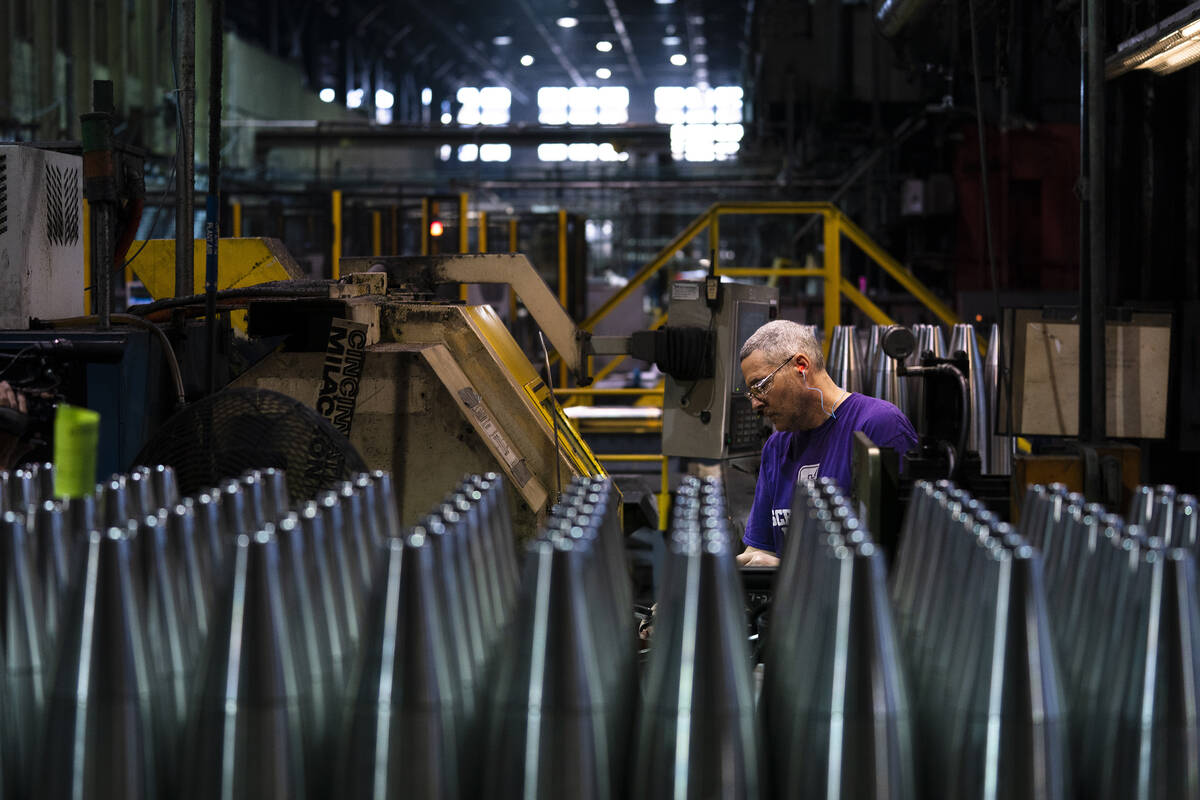RICH LOWRY: The superpower that can’t arm itself
No matter how much we’d like to believe in the inevitably of human progress and the spread of enlightened norms, we’ve learned the past couple of years that we still need artillery shells — lots of artillery shells.
The Hamas terror attack, together with the ongoing Ukraine war and the looming Chinese threat to Taiwan, is putting a spotlight on the pitiful state of our capacity to manufacture the weapons necessary to the defense of our allies and ourselves.
According to a CNN report, an Israel ground invasion of Gaza would “create a new and entirely unexpected demand for 155 mm artillery ammunition and other weapons at a time when the U.S. and its allies and partners have been stretched thin from more than 18 months of fighting in Ukraine.”
We are learning to our regret that we are using an attenuated post-Cold War, “end of history” defense-industrial base to try to meet the security needs of a newly threatening international environment with the real risk of Great Power conflict.
As it turns out, the peace dividend was very expensive. It now should be a matter of the highest national priority to use every lever of government and the private sector to bolster the defense-industrial base in all its aspects.
We aren’t being asked, by the way, to fight a three-front war in Europe, the Middle East and Asia ourselves. No, the call is simply to provide arms to allies under attack or threat. If we can’t do that, what does it say about our status as the world’s pre-eminent power?
In Ukraine, the hopes of Moscow for a lightning victory and of the West for a sweepingly successful Ukraine counteroffensive both appear to have come a cropper. Now, it’s a grinding artillery war. Ukraine is estimated to need 1.5 million shells a year, and has been firing as many as 6,000 a day. Russia was firing even more at the peak of its offensive.
The United States had supplied 2 million artillery shells to Ukraine as of July, and has been scrounging around — along with other Western powers — to feed whatever supplies it can find into the maw of the war. It’s not that we have been completely asleep. The United States was making 14,500 shells a month at the beginning of 2023, and has roughly doubled that. We hope to get to 100,000 a month in 2025.
If we can’t supply Ukraine, what if we become embroiled in a major war with China?
We are also in the bizarre position of being dependent on our potential enemy for the materials we’d need in a war with that enemy. China has a dominant position in the market for rare earth metals — so important to the production of high-end weapons — and is the world leader in cast products.
There is no easy way out of the hole we’ve dug ourselves. It will require more spending on defense; more reliable, long-term contracts for the production of key weapons; a focus on securing the supply chain necessary to the production of high-tech munitions; and assistance to manufacturers in training workers, among other things.
The history of empires and nations that don’t mind the need for up-to-date weapons at the scale necessary to defeat or deter adversaries isn’t a happy one. It’s in our power to avoid this fate — if we have the will and don’t waste more time.
Rich Lowry is on X @RichLowry.

















